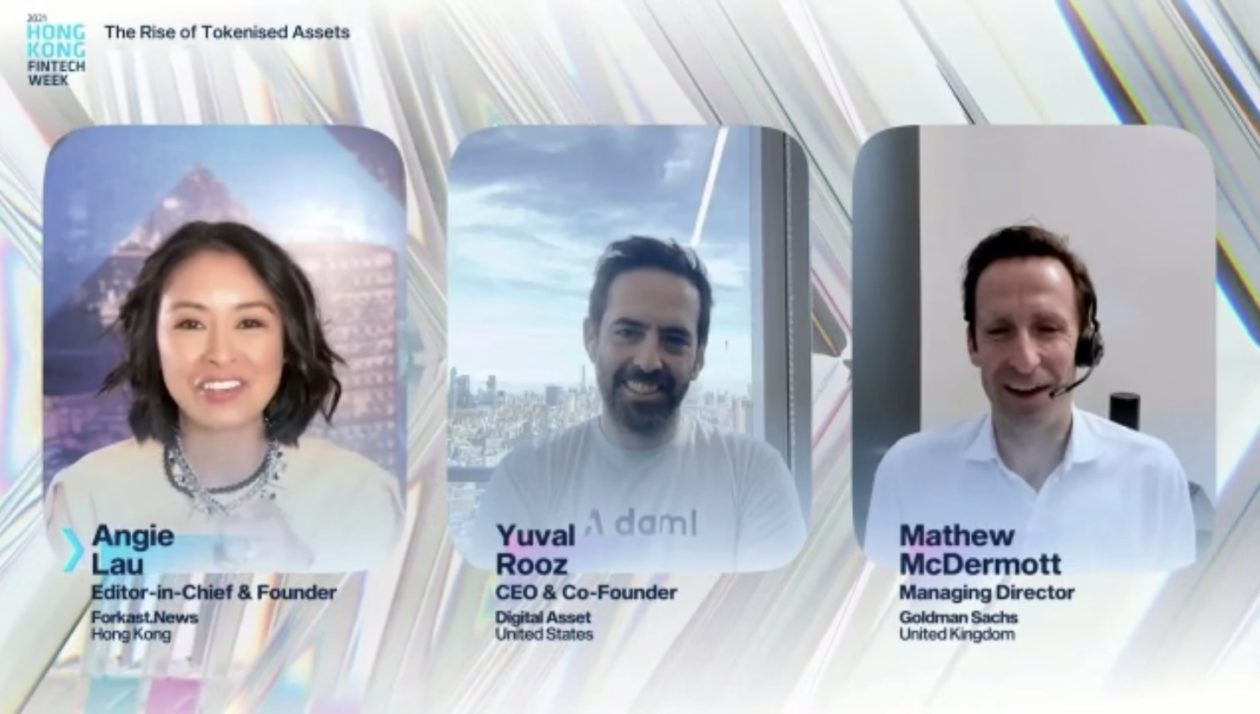The traditional financial industry is getting its feet wet in tokenization of assets, and there’s an influx of interest in the private asset space, as Mathew McDermott, managing director of Goldman Sachs, said today at a Hong Kong Fintech Week panel moderated by Angie Lau, editor-in-chief and founder of Forkast.News.
Fast facts
- McDermott said Goldman Sachs has tokenized intraday repo. “That was for us a big step forward that is redefining or will redefine over time the way that intraday liquidity transact in the marketplace,” he said. The legacy bank has also been involved in projects such as issuing a digital debt native to a public permissioned blockchain, he added.
- “Reduction of risk is a huge part I think the industry is looking at,” Yuval Rooz, CEO and co-founder of Digital Asset, a New York-based tech company behind smart contract language DAML, said at the same panel. “It’s not just the idea of distribution in the crypto market — which is ‘can I bring my asset to pretty much every phone in the world’ — but it’s also this idea that not having these silos or these manual processes in the middle could create a massive amount of much better liquidity throughout the day, less counterparty risk and overall reduce a lot of risk on the ecosystem.”
- Specifically, McDermott said there are generally two types of tokenization. “There’s the kind of tokenization of traditional assets … where you issued debt traditionally in the market and then you actually tokenized that asset and you trade that token on chain.”
- “Or you can have a situation where you issue a token native to the blockchain, and the transaction we did earlier in the year with the European Investment Bank is an example of that,” McDermott added. “It’s interesting when you look at the two dynamics. If you issue a token natively, you can really embrace the programmability of the technology.”
- Indeed, more players are making moves to attempt tokenization. For example, in August, the Bank for International Settlements (BIS) Innovation Hub Hong Kong Centre and the Hong Kong Monetary Authority said they were collaborating on Project Genesis — a green finance project for the tokenization of green bonds using blockchain technology.
- In June, DBS Bank, Southeast Asia’s largest lender by assets, also launched its first security token offering — a S$15 million (US$11 million) digital bond issuance — on its DBS digital exchange.





